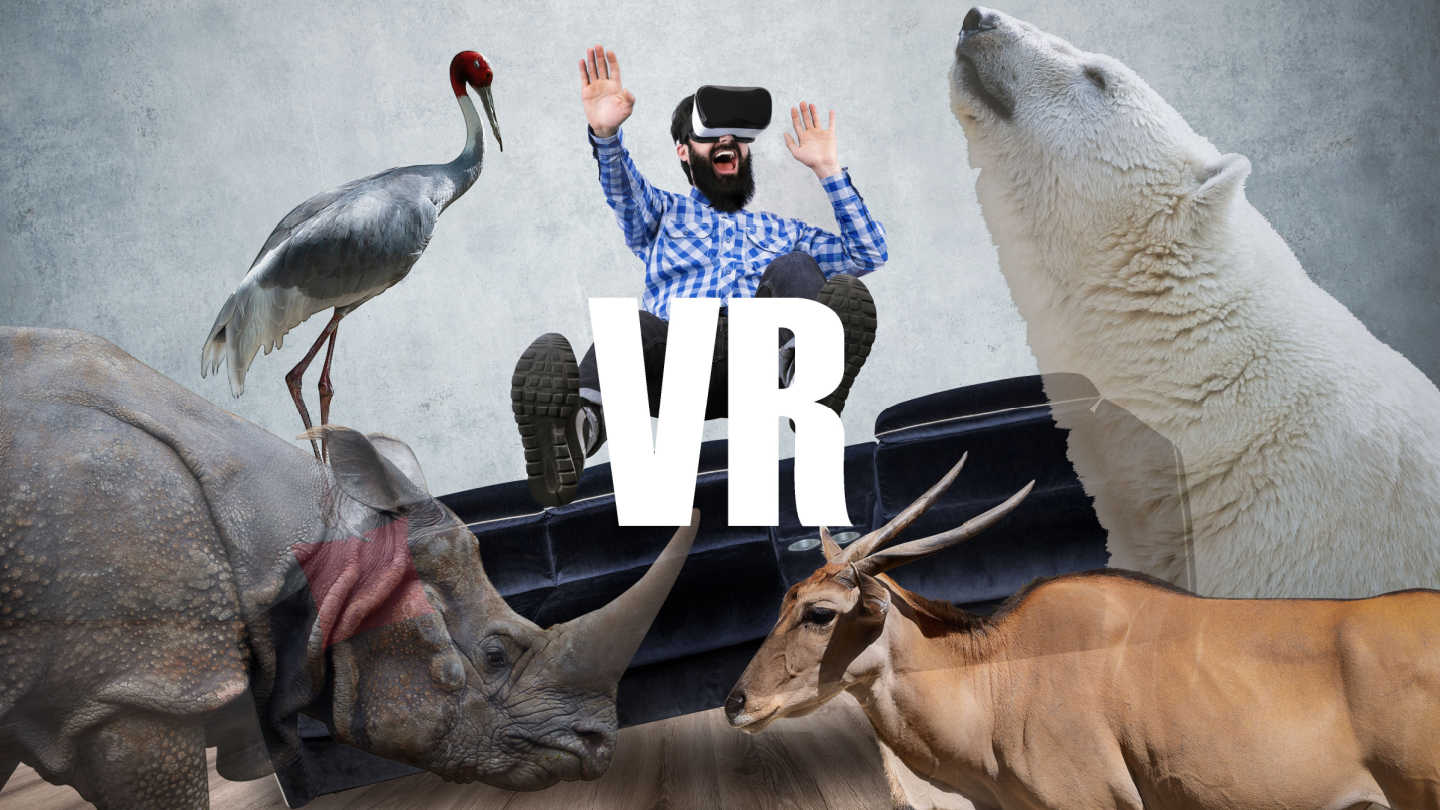
The rise of the vegan movement, the popularity of documentaries like Blackfish, and the interest in the case of Happy the Elephant all suggest that concern for animal welfare and animals in captivity is increasing.
In a 2022 poll commissioned by YouGov, animal welfare was ranked as one of the top three concerns for the UK public when considering a range of social and environmental issues. With this in mind, the arrival of virtual reality (VR) in zoos and aquariums could be good news, as it has the potential to address ethical concerns around animal exploitation.
Happy and Tilikum
In 2015, #FreeHappy began trending online. With a petition that has now reached almost 1.5 million signatures on Change.org, the public is demanding that The Bronx Zoo end Happy the Elephant’s ten years in solitary confinement and release her to a sanctuary. The basis of the argument is that elephants like Happy have scientifically recognized intelligence, a high level of cognitive functioning, and a significant emotional capacity. Thus, keeping her in confinement is cruel. Although the case for her freedom was overturned in the courts in 2022, it raises questions about the effect of captivity on animals.
Moreover, the 2013 release of the documentary Blackfish, which followed the ordeal of Tilikum, a captive Orca, under SeaWorld’s ownership, led to widespread public outrage and a dramatic decrease in visitors to SeaWorld parks. In the year following the documentary’s release, SeaWorld announced that visitor numbers had dropped by one million. As a result, it permanently shut down its captive Orca breeding program and was forced to pay $65 million in settlement claims to its investors, who argued that they had been misled.
Ethical problems around animals in captivity are not going away and, as in the cases of Happy and Tilikum, they could lead to serious negative publicity, expensive settlements, and declining revenues.
Virtual reality experiences
An answer to ethical issues and related financial costs could lie in VR. London-based VR company Immotion has created specialized VR pods that aim to immerse audiences in nature. For example, Gorilla Trek takes place in the Rwandan jungle and allows users to engage with endangered silverback gorillas, whereas Shark Dive allows users to dive alongside elusive tiger sharks. These motion pods with VR headsets and realistic audio have been brought to zoos across the world, including Chester Zoo (the most visited in the UK) and SEA LIFE London Aquarium. Millions of visitors each year can experience this kind of VR technology.
How well do you really know your competitors?
Access the most comprehensive Company Profiles on the market, powered by GlobalData. Save hours of research. Gain competitive edge.

Thank you!
Your download email will arrive shortly
Not ready to buy yet? Download a free sample
We are confident about the unique quality of our Company Profiles. However, we want you to make the most beneficial decision for your business, so we offer a free sample that you can download by submitting the below form
By GlobalDataTechnology like this could change how the current zoo and aquarium model works, allowing education and conservation to focus less on captivity. Instead, by providing a more immersive experience, zoos and aquariums could place animal welfare at the forefront or at least eliminate some of their most concerning practices.
The route to fewer animals in captivity
Perhaps, instead of keeping elephants like Happy in confinement, zoos could introduce VR experiences following migration journeys in the savannah; instead of SeaWorld holding whales like Tilikum in captivity and forcing them to perform, they could introduce VR rides in which the visitor gains a more intimate underwater experience themselves, swimming alongside the whales in the wild.
Overall, this technology can help minimize the exploitation and mistreatment of animals in captivity. However, it is unlikely that zoos and aquariums will stop keeping animals in captivity anytime soon, due to human beings’ tendency to find novelty in seeing something in the flesh. Nonetheless, a hybrid model where vivid and educational VR experiences supplement fewer animals in captivity could be the way forward.





Related Company Profiles
YouGov Plc